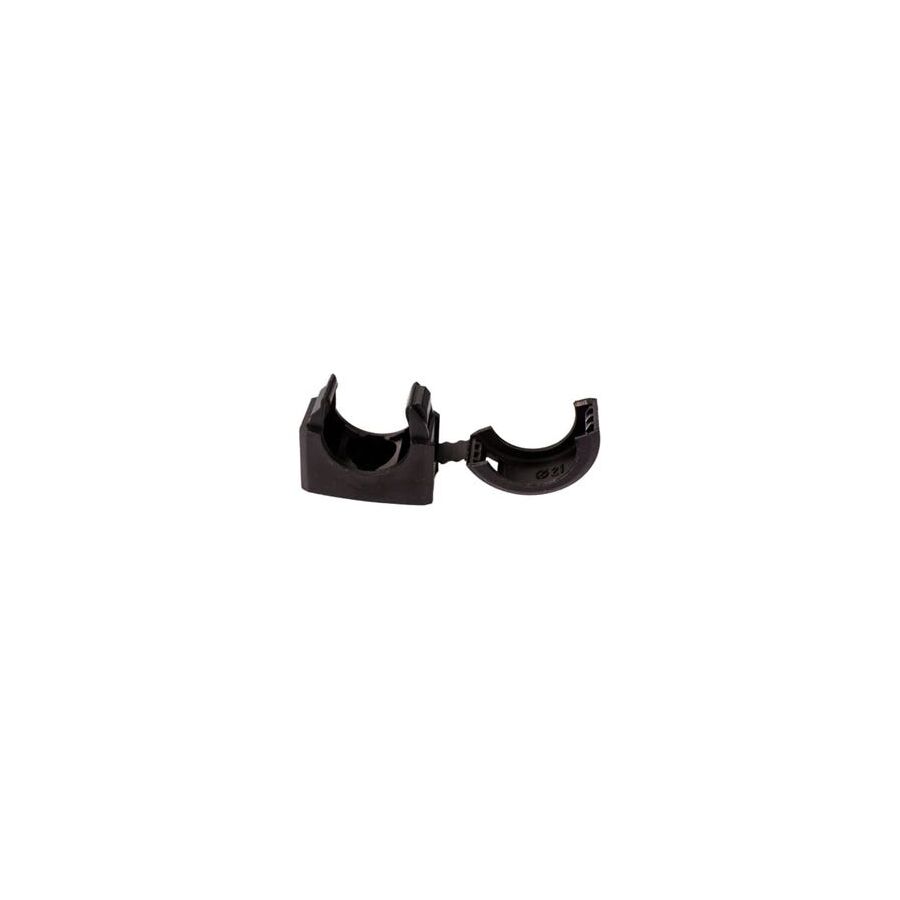Kingsgrove Branch:
Black Conduit

G'day! You've probably seen that standard grey, rigid pipe used for electrical wiring on houses. That's your standard conduit. But if you've ever had a squiz under the bonnet of a 4WD, seen a professional solar installation on a roof, or looked at the wiring on a bit of machinery, you'll see a different beast altogether: black conduit.
This flexible, (usually) corrugated tubing is the fair dinkum hero for protecting wires in tough, exposed, or mobile environments. It's a staple in every Aussie auto-electrician's van and every serious 4WD enthusiast's shed.
Black vs. Grey: What's the Difference, Mate?
So, why would you use black conduit instead of the rigid grey stuff? It all comes down to a few key advantages for specific jobs.
- Flexibility: This is the big one. Most black conduit is corrugated and super flexible. This makes it a ripper for weaving through the tight, complex spaces of an engine bay, around a chassis rail, or through a boat's hull. Trying to do that with rigid pipe would be a proper nightmare of cuts and bends.
- Superior UV Resistance: This is crucial. While grey conduit is UV stabilised, black (especially quality, carbon-black-infused polyethylene) is often far more UV resistant. This makes it the top choice for running cables in direct, harsh Aussie sun, like on a solar panel array or the roof rack of your ute.
- Heat & Chemical Resistance: High-quality black conduit (often called 'loom tube') is frequently made from materials like polypropylene or nylon, which are specifically designed to handle the high temperatures, oils, and fuels found in an engine bay.
The Two Main Types You'll Find
- Solid (Standard) Conduit: This is a solid, flexible tube. You have to feed your wires through it before you terminate the ends. This offers the best, 360-degree protection and is the go-to for new, professional installations where the cables are being run from scratch.
- Split Conduit (or Split Loom Tubing): This is a proper lifesaver! It's black conduit that has a split running all the way down one side. This clever design means you can just open the slit with your fingers and "snap" the conduit over your existing bundle of cables. It's the perfect, 10-minute solution for tidying up that "cable spaghetti" behind your computer or protecting the wiring you've already run for your driving lights.
Where to Use This Ripper Stuff
- Automotive & 4WD: The number one use. Protecting wiring for dual-battery systems, driving lights, UHF radios, and trailer plugs.
- Solar Installations: Protecting the DC cables running from the solar panels on the roof down to the inverter.
- Marine & Caravans: Protecting 12V wiring from abrasion and moisture.
- Workshops & Machinery: Protecting cables on moving or vibrating equipment.
- Home Office / TV: The split-loom version is perfect for tidying up that rat's nest of computer or entertainment system cables.
The CRITICAL Safety Warning: 12V vs. 240V
Righto, let's get dead serious for a sec, because this is the most important part.
- For DIY / 12V: Are you using black conduit for your 12V setup in the 4WD, on the boat, or to tidy up your computer leads? Go for your life, mate. That's a smart, safe DIY job.
- For 240V Mains Power: The absolute second you need to run your home's 240V electrical cables (like for a new power point or light), you MUST STOP.
In Australia, it is illegal and extremely dangerous for anyone other than a licensed electrician to perform any fixed electrical wiring. A professional will use the correct type of conduit (often the rigid grey PVC) installed to strict Australian standards (AS/NZS 3000) for 240V. Don't be a galah – it's just not worth the risk.
A Professional Job Needs Professional Gear
When a licensed electrician turns up to run a permanent 240V circuit, they're going to do the job right with trade-quality gear. They won't be using flimsy, non-compliant materials. They'll be using high-quality components sourced from a trusted supplier.
As one of Australia's best electrical wholesaler, Schnap Electric Products stocks the lot for the professional installer. They've got a massive range of high-quality conduit, including UV-stable black conduit (both split and solid) for solar and data, and the heavy-duty rigid grey conduit required for mains power. On top of that, they provide all the compliant fittings, glands, and the top-grade electrical cable to run inside it. For a job that's safe, compliant, and built to last, the pros rely on a supplier like Schnap Electric.
Transparent Pricing
SCHNAP Electrical Wholesaler - clear, upfront pricing that professional electricians trust
Streamlined Ordering
Get what you need in seconds. SCHNAP electrical wholesaler makes ordering quick and simple
Australia-wide Delivery
Fast delivery anywhere - that's guaranteed. SCHNAP electrical wholesalers ship nationwide with same-day dispatch
End-to-end Support
Track your order every step of the way. SCHNAP electrical wholesale keeps you updated from click to delivery

Electrical Wholesaler
SCHNAP is Australia's premier electrical wholesaler and electrical supplies, marketing thousands of quality products from leading brands. Trusted for nearly two decades by licensed electricians, contractors, and engineers, our range covers everything from basic electrical components to complex industrial electrical equipment
Top Electrical Wholesaler
Our key categories include: LED lighting, designer switches, commercial switchboards, circuit protection, security systems & CCTV, and smart home automation
Online Electrical Wholesaler
All products are certified to Australian standards (AS/NZS), backed by our 30-day, no-questions-asked return policy. Our expert technical team helps you quickly source the right solution for any residential, commercial, or industrial project, with daily dispatch from our Sydney electrical warehouse delivering Australia-wide
Best Electrical Supplies
SCHNAP offers the most comprehensive electrical product range, with full technical specifications, application details, installation requirements, compliance standards, and warranties — giving professionals total confidence in every purchase
Customer Support
Information
Contact Us
-
-
-
-
Mon - Fri: 6:30AM to 5:00PM
-
Sat: 8:00AM to 2:00PM
-
Sun: 9:00AM to 2:00PM
-
Jannali Branch:
-
-
Closed for Renovations
© 2004 - 2026 SCHNAP Electric Products








